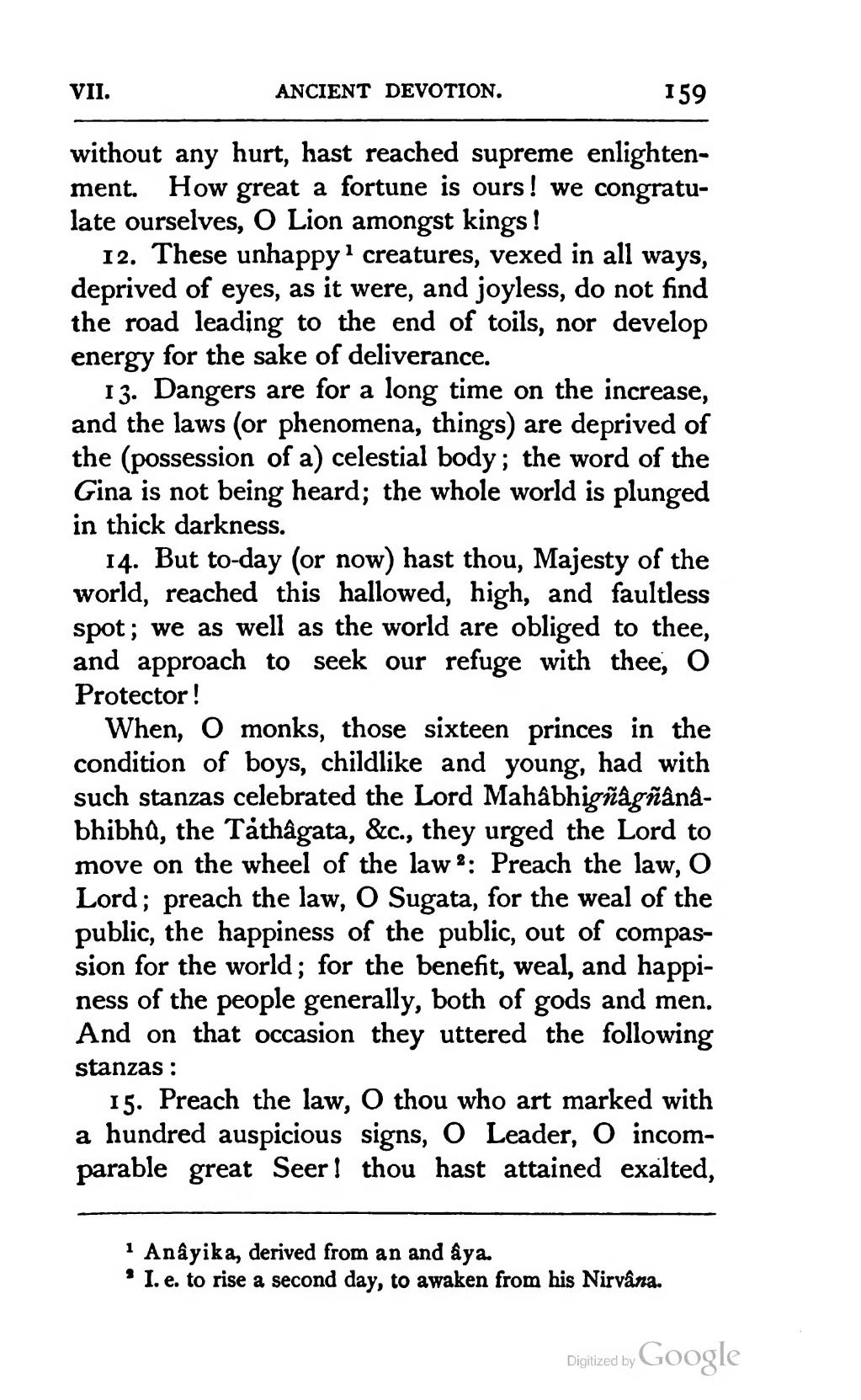without any hurt, hast reached supreme enlightenment. How great a fortune is ours! we congratulate ourselves, O Lion amongst kings!
12. These unhappy[1] creatures, vexed in all ways, deprived of eyes, as it were, and joyless, do not find the road leading to the end of toils, nor develop energy for the sake of deliverance.
13. Dangers are for a long time on the increase, and the laws (or phenomena, things) are deprived of the (possession of a) celestial body; the word of the Gina is not being heard; the whole world is plunged in thick darkness.
14. But to-day (or now) hast thou, Majesty of the world, reached this hallowed, high, and faultless spot; we as well as the world are obliged to thee, and approach to seek our refuge with thee, O Protector!
When, O monks, those sixteen princes in the condition of boys, childlike and young, had with such stanzas celebrated the Lord Mahâbhigñâgñânâbhibhû, the Tathâgata, &c, they urged the Lord to move on the wheel of the law[2]: Preach the law, O Lord; preach the law, O Sugata, for the weal of the public, the happiness of the public, out of compassion for the world; for the benefit, weal, and happiness of the people generally, both of gods and men. And on that occasion they uttered the following stanzas:
15. Preach the law, O thou who art marked with a hundred auspicious signs, O Leader, O incomparable great Seer! thou hast attained exalted,

